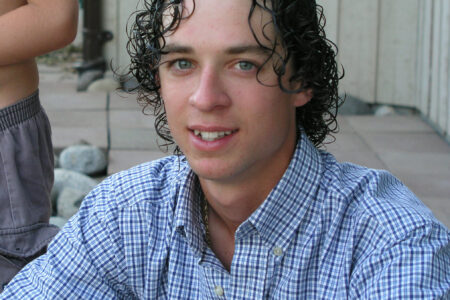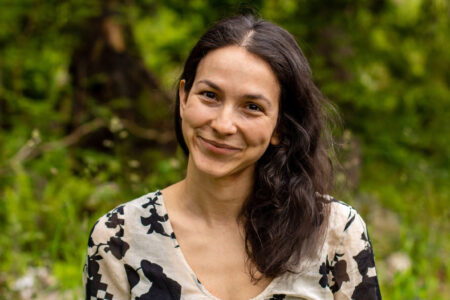Unplugged: Rossland plays trump card and helps plunge backed up sewage issue forward
The long stalled sewer service review dispute between Rossland and Trail has shown the first signs of breaking the stalemate. A special RDKB board meeting in Grand Forks on March 3rd saw a rare agreement between the three partners in the regional service agreement (Rossland, Warfield and Trail) come to an agreement–albeit not on the first attempt. The plunger that got things moving again was a piece of land owned by the Regional District that the City of Trail has been attempting to purchase since 2006. That piece of land became the trump card in Rossland’s hand as they negotiated a three part deal that should provide means for progress on the long standing sewer issue.
The piece of land in question was a 1.32 acre slice of the RDLB-owned land that the Waneta treatment plant sits on. More specifically, it is largely composed of the grassy hill behind AM Ford, next to the SCPA. Back in 2006, The City of Trail made a pitch to the Regional District to purchase the land. At that time the district was just entering the liquid waste management planning process’s Phase One.
The consensus around the table was that planning for the potential future of the sewer treatment plant was just getting underway and the district wasn’t comfortable selling off any of that land until they had a better idea on what the future of the plant might be. Unbeknownst to the participants at the time, the liquid waste management planning process was about to get seriously constipated and sit at a standstill for almost four years. Phase One was submitted in June of 2007. Following the March 2nd deal phase two of the plan will now soon get under way.
Recently the City of Trail re-approached the regional district about purchasing the piece of land. As the land is owned by the regional district, the municipalities within the district must agree to sell the land. That gave Rossland a trump card to play.
At the March 2nd meeting the motion was made to sell Trail the piece of land outright with no conditions attached. That motion was defeated. Rossland city councillor (and regional director for Rossland) Kathy Wallace, with the support of Rossland City Council, made a new motion that the land be sold to Trail with three critical conditions attached. First was that Trail agree to officially call an end to the regional sewer service review process. Second was that all three partners agree to begin liquid waste management planning Phase Two. Third was that all three partners agree to enter non-binding mediation over the funding formula for the service agreement.
Trail had been blocking and refusing Rossland’s requests to enter into non-binding arbitration, instead stating they wanted binding arbitration or, that failing, provincial intervention.
Ultimately, the three sides agreed that it was in the best interest of the common good to get the process moving. The agreement–with wins for all sides–was carried.
A conditional agreement is now in place for the City of Trail to purchase the piece of property at fair market value that is yet to be determined. Although they are currently unable to announce the nature of their plans for the land, the City did release a statement reading “The City of Trail currently owns and leases the lands occupied by a local car dealership and with the RDKB’s agreement will expand these holdings, which will provide an opportunity for a much more significant commercial development.”
The environment will eventually be the big winner in this agreement as the Waneta treatment plant, which is the only remaining primary treatment plant in the province, will now begin to have its future decided. Re-starting the planning process was critical from the RDKB’s point of view as primary treatment plants are not in compliance with provincial regulations. If the planning process had remained stalled, the Regional District could have faced fines of up to one million dollars a day from the province. So long as the region is in the planning process those fines do not apply.
Planning for how Phase Two will get started is now underway at the regional district level.
Moving into a mediation process should expedite the process as the only piece of the review now under negotiation is the cost sharing formula which has been the primary source of contention between Rossland and Trail.
The question now will be this: can the three cities involved, with a mediator’s help, come to agreement on a new cost sharing formula? Bert Crocket, regional director for Warfield and chair of the regional sewerage committee, is optimistic that if past issues can be put aside, a result that is good for the public of the whole region should be achievable.
“If all of the politicians do the right political maneuvers here we should have a new sewage treatment plant for the whole area with all participants involved. I’m hoping that cooler heads will prevail and all politicians involved can look forward to moving to something a little more modern that incorporates everybody. To me at the end of the day the effluent that we put back into the environment is very very important. If we can all get together, play nicely and do a real first class treatment plant then what we discharge back in the river will be nice and clean and help the health of the river.”
Kathy Wallace and Mayor Dieter Boggs of Trail echoed one another’s statements, both noting that “This was a real opportunity to move things forward.”
An arbitrator will now be hired to meet with all sides, gather all relevant information and then go back, look at relevant legislation, study the issue and come back with a recommendation they believe is equitable for all involved. As the mediation is non-binding, Rossland, Trail and Warfield will still have to decide whether they agree or disagree with the findings. If no agreement is reached, the current funding formula–now a half century old–will remain in place.
Regardless of the results of arbitration, Phase Two of the planning process–four years after the completion of Phase One–will soon resume.

























